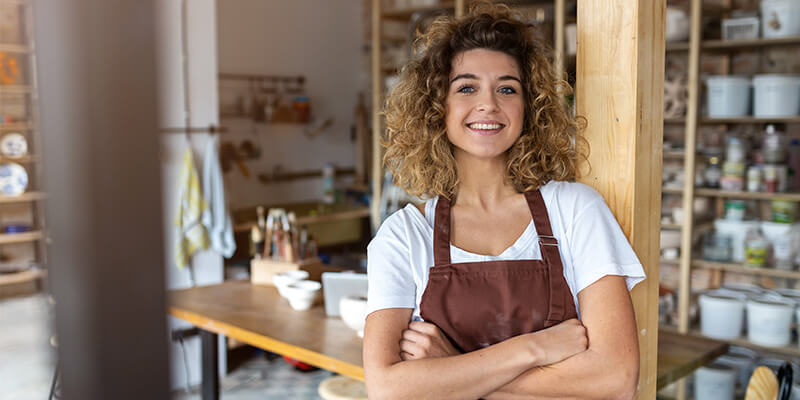How to Help Prevent Slip and Fall Accidents in the Workplace

There are countless reasons why business owners need insurance. One of the most important reasons is the prevalence of slip and fall accidents. When employees, customers, contractors, and clients are on your property, you are responsible for their general safety and well-being.
If someone falls because of wet floors at your business, you could be held financially liable. They could sue you for expenses related to medical bills, emotional suffering, loss of wages due to time off work, and more.
While general liability insurance and Workers’ Compensation coverage could protect you and your business from these expenses, it could also help to be proactive and learn how to improve workplace safety. After all, it could be easier and less stressful if these accidents were not happening in the first place.
We can help. Keep reading for a quick guide on how to help prevent slip and fall accidents.
Provide Proper Hand Railings and Non-Skid Pads on Stairs
One way that could prevent slip and fall accidents, is to ensure there are safety railings in all necessary places. This includes stairways, balconies, and other elevated spaces.
The railings should be strong and secure. If a railing gives way as someone is using it for balance, you can be held liable.
You should also attach non-skid or abrasive pads to your stairs to help prevent slips. Slippery stairs paired with gravity can lead to serious injuries.
Secure All Rugs and Coverings to the Floor
Many slip and fall accidents are caused by bunched-up or unsecured rugs. If a rug is not secured to the floor, it can roll up and catch someone's foot while they are walking over it. This can result in trips, falls, and injuries.
Use adhesive tape or rugs specifically designed to cling to the floor surface. This could also prevent the rug from getting bunched up, creating another tripping hazard.
Thoroughly Clean Up Spills and Other Messes
The key to workplace safety is staying on top of maintenance and cleaning. This is especially important in restaurants, coffee shops, and other commercial businesses where spills are a common occurrence.
Learn how to remove grease from the floor, which can make hard surfaces dangerously slippery. Even water can increase the dangers of a slip and fall accident.
Regardless of what is spilled on the floor, it should be cleaned up immediately. The longer the substance stays on the floor, the more likely it is to cause an accident.
Put Up "Wet Floor" Signs After Mopping and on Rainy Days
Alerting people of slippery surfaces is one of the most common ways to prevent slip and fall accidents. If it is a rainy or snowy day, people may track water into your business. If possible, we recommend laying down mats at entrances to soak up water from wet shoes.
Putting up "caution" or "wet floor" signs may also limit your liability and could warn people of the danger. These signs are essential if your employees or hired cleaning services are mopping or waxing the floors.
Ensure Proper Lighting in All Areas
Another common cause of slip and fall accidents is inadequate lighting. It is easier to trip over objects if you cannot see them.
While this generally is not an issue in the common areas of your business, make sure your storage areas and utility rooms are properly lit. The health and safety of your employees are just as important as the health and safety of your customers.
Remove All Tripping Hazards and Clutter from Walkways
Even in the most well-lit room, unfortunate tripping hazards and clutter can lead to nasty slips and falls. No matter what type of business you operate, you could make it a policy to keep all walkways clear.
If you own a retail store, make sure your product displays leave ample room for customers to walk by and move around. There is nothing wrong with advertising your products, but you should not make your store an obstacle course.
Ensure Employees Working in High-Slip Areas Wear Non-Skid Footwear
Some businesses are prone to slippery surfaces. As noted earlier, restaurants are constantly experiencing spills in the kitchen and dining area. There are also several other business types that have hard-surfaced floors that commonly experience spilled fluids on them.
Aside from investing in a Workers’ Compensation policy, you may also want to make sure employees wear non-skid shoes to work. If it a mandatory uniform item it could help to avoid unnecessary accidents.
Are You Protected Against Slip and Fall Accidents?
As you can see, you may need slip and fall accident insurance. Even if you have implemented tactics to prevent slip and fall accidents, you can never completely eliminate the risk.
We would love to work with you to make sure you are covered in the event of an accident. When you are ready to talk about your insurance options, contact us today to get a quote.